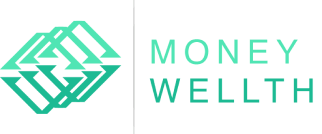For the next few months, I will give a weekly update on conditions and observations that indicate whether or not we are going into recession or already in one. Soft landing, hard landing, no landing at all? The news has been all over the place lately. Let’s sort through it.
Most economists define a recession as two consecutive quarters of “decreasing gross domestic product,” or GDP. We had that a year ago with a mild dip, but then the GDP improved so that the National Bureau of Economic Research, or NBER, did not label this a recession.
GDP is the amount of output in an economy based on spending. In the U.S., almost 70% of GDP is determined by consumer spending, so consumers’ daily behavior will be the most significant determinant of the direction of GDP growth or contraction.
What determines whether consumers will spend money instead of saving? It has a lot to do with people’s confidence that they will be able to maintain and improve their standard of living and income. Recessions are often based on consumer behavior. Behavior is determined by expectations for how the economy will function for us in the near future.
Consumer confidence improves when jobs are stable and plentiful and “the economy” seems to be doing well. The stock market will be up, and prices of goods and services will be stable. Your job feels secure, as do the jobs of friends and family. People are taking vacations, making large purchases, and feeling good about the future.
Consumer confidence declines when any of the above conditions reverse. If the unemployment rate increases, we start reading about layoffs. We get concerned if we know people who are worried about their jobs, are getting their hours cut back, or are losing work. What if we are next? It becomes stressful if inflation feels out of control and buying the same things we need costs more. We stop buying “discretionary items,” the things we want but don’t need. If we hear of companies and people going into bankruptcy, all these things worry us, and we respond by “hunkering down” financially. The economy will slow if people stop spending on cars, homes, vacations, and meals out to eat.
When consumers stop buying “stuff,” that will eventually show up in GDP as a decreasing number; when that happens for two quarters in a row, or six months, a recession will be “declared.” When the word recession is used, people will be even more careful about spending, which feeds off of itself. This is why the government is hesitant to call an official recession.
Typically, we have been in a recession for about six months on average by the time it is announced. GDP itself is a “lagging indicator.” In other words, it takes a while for these changes in the economy to eventually show up in the GDP number.
Where are we now?
Here are some arguments against us being in a recession:
- Unemployment is low. There are two jobs out there for every person looking for a job. In January, employment increased by more than 500,000 jobs when the expectation was about half of that.
- The stock market has so far been doing okay in 2023. The markets were down in 2022 but have improved a little this year. Usually, stable and increasing markets are a sign of investor confidence in the economy.
- Retail sales continue to be reported as being strong. The consumer continues to spend money. This is a sign that the consumer feels confident in the economic future.
- Wages have been going up for many people.
- We are not seeing personal or corporate bankruptcies increasing at this time.
Here are a few arguments that are concerning for an impending or current recession:
- Layoff announcements are increasing. Currently, this is mostly at tech companies on the west coast, but these things tend to spread.
- Credit card debt is at its highest ever. We ended 2022 with just under $1 trillion in total credit card debt in the U.S. People are spending money that they don’t have. This usually doesn’t end well and can’t go on much longer as people hit their borrowing limits.
- Interest rates are up for loans on homes, cars, and credit cards. Banks have become less generous with loans. Many people will not be unable to take on more loans and credit. This impact will slow down spending.
- Inflation is the highest it has been in 40 years. Prices have increased for food, cars, housing, and many other goods that we all need. This means less money left over for discretionary spendings, such as meals at restaurants, movies, and entertainment.
What can we do about today?
If we think a recession is near, the best we can do is increase our financial resilience. Prepare for unexpected economic challenges. The following are three things you can begin today:
- Work hard to decrease debt, especially high-interest debt like credit cards.
- Put more money into your rainy day fund, or start one if you have not.
- Consider getting a second job, or side hustle, to help with steps 1 and 2.
More to come next week as we read the tea leaves and follow the news.

